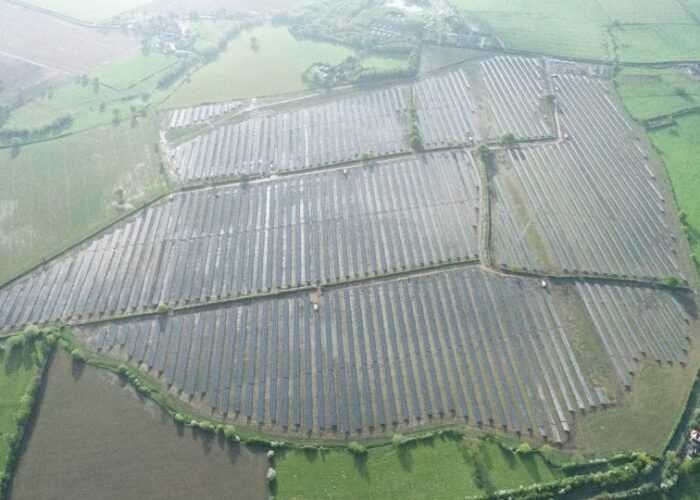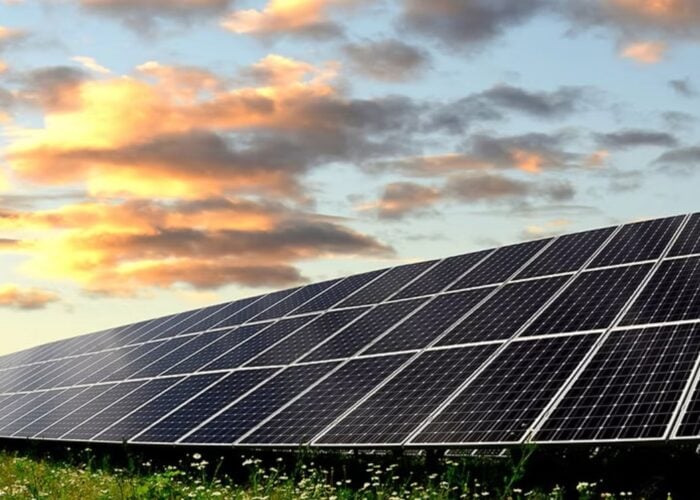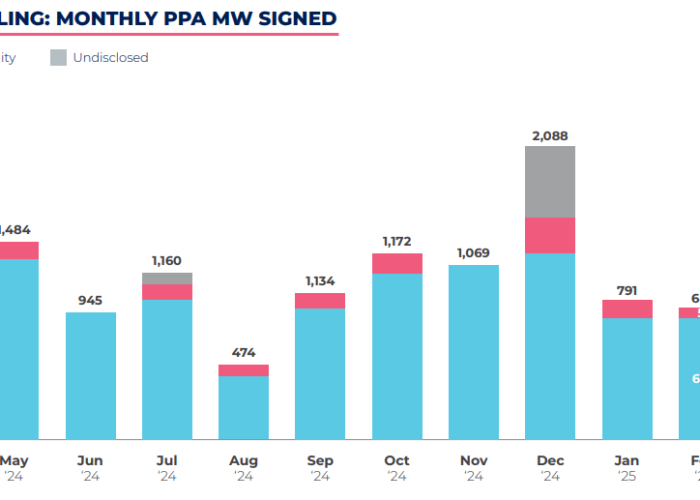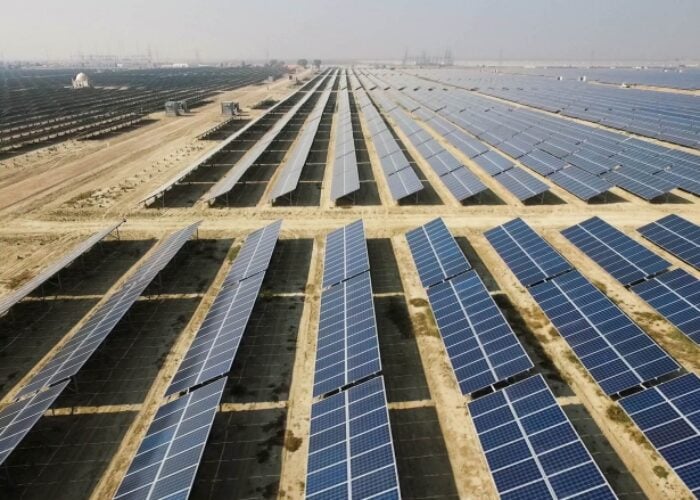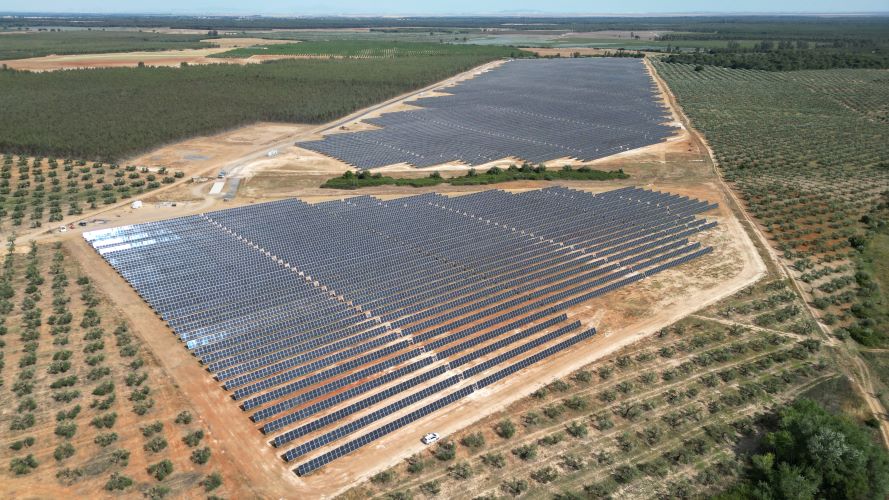
The average price of solar power price agreements (PPAs) signed in Europe has stabilised after months of decline, and PPAs will continue to become a larger part of the European clean energy space.
These are the takeaways from LevelTen Energy’s latest quarterly report into the European renewable PPA market. The report notes that after solar PPA prices declining for several consecutive quarters, market-averaged P25 solar PPA prices grew by 1.3% between the second and third quarters of this year, reaching €63.64/MWh (US$69.32/MWh).
Unlock unlimited access for 12 whole months of distinctive global analysis
Photovoltaics International is now included.
- Regular insight and analysis of the industry’s biggest developments
- In-depth interviews with the industry’s leading figures
- Unlimited digital access to the PV Tech Power journal catalogue
- Unlimited digital access to the Photovoltaics International journal catalogue
- Access to more than 1,000 technical papers
- Discounts on Solar Media’s portfolio of events, in-person and virtual
Or continue reading this article for free
Much of this change was driven by the signing of higher-priced PPAs in Hungary, Italy and Ireland, and the average price of a solar PPA remains notably lower than the price for wind PPAs, which sits at €88.7/MWh and for blended PPAs, which averages €76.17/MWh.

“In solar there has been a lot of competition, a lot of deployment all across Europe, and that has affected the value of the assets,” LevelTen director of European analytics Plácido Ostos told PV Tech Premium exclusively this week.
Ostos went on to suggest that, as Europe installs increasing volumes of new solar capacity, the supply of solar is such that the price of a solar PPA may have reached the point at which it cannot go lower.
“It’s very clear that even though you can have the cheapest solar [in southern Europe], there is a limit to that,” said Ostos. “In the case of Spain, I think it’s been two or three quarters now that the price has been flat, reflecting the economic limit [of solar] being constructed and sold at that price.”
“That’s the case in Spain, which is one of the extreme cases because of the huge solar deployment, but in other countries, where there is different solar irradiation, we are also seeing that prices are stabilising.”
Significant regional variation
An example of stable prices in other countries is the UK, which has seen its average solar PPA price barely move beyond the range of €90-100/MWh since the fourth quarter of 2022, when it exceeded €100/MWh. Just four years ago, in the third quarter of 2020, the average solar PPA price in the country was less than half of this, lower than €50/MWh, highlighting the starkness of the recent stability.
Indeed, across Europe, the report suggests that macroeconomic factors have continued to make a significant impact on PPA prices. The report notes that in September, the European Central Bank lowered its deposit facility rate to 3.5%, its second interest rate cut in just over four months, which has eased some of the financial burden on renewable power projects developers in particular.
However, while the average price of a solar PPA may have stabilised within countries’ individual borders, there remains considerable variation across Europe as a whole, from a low average price of €39/MWh in Spain to a peak of €122.50/MWh in Ireland. Ostos pointed out that, for the first time, Spain has endured negative power prices this year, highlighting the range of power prices across the continent.
“[Regional variation] is also related to overall costs,” explained Ostos, discussing why there has been such considerable regional variation. “Let’s assume that it costs the same in Spain and the UK [to install a solar panel], you’re going to get way less in the UK, so you need to increase the price to make up for the lower amount of energy you’re producing.”
Ostos also argued that a country’s legal framework, from political priorities to regulations, can have a significant impact.
“Political landscape can have a vast impact in any market; it can create or kill any market. Onshore wind in the UK was banned under the previous government, but have just had a push in the last allocation round, for example. Ostos added that, “of course, Germany is not that sunny, but if you compensate that with good regulation, it helps to make those economics viable.”
The normalisation of PPAs
LevelTen’s latest report comes as interest grows in the European PPA space, both for renewable power in general and solar in particular. Earlier this year, Pexapark reported that Europe signed deals for a record 16.2GW of renewable power capacity in 2023, and Ostos suggested that, over time, PPAs will only become more commonplace in the clean power trading space.
“[In future] all renewables will try to go through a PPA, and PPAs will become more of a standard,” said Ostos. “They are already fairly well-known, but they will become more and more common; that’s my view.”
“I’m confident that, not that we’re not going to see negative prices or cannibalisation, but [these] are not going to be as dramatic as a lot of people want to think,” said Ostos, surmising that the solar PPA landscape has become, and will continue to be, more stabilised. “People are aware [of this] and taking measures on that.”


